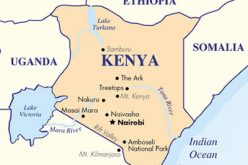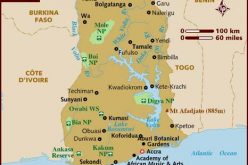Ghana Mission,New York – Ghana has strongly made a case at the United Nations to economically empower women in the cocoa industry.
At a side events held at the UN headquarters in New York on the heels of the on-going 61st Session of the Commission on the Status of Women (CSW) it became clear that gender inequalities limit economic productivity, efficiency and also undermines development agenda.
In her presentation on “Financial Empowerment of Women in the Cocoa Industry in Ghana”, Ms. Patricia Appiagyei, MP for Asokwa and Deputy Minister designate for Environment, Science and Technology said despite the fact that women perform 60 per cent of the world’s work, produce 50 per cent of the food, they manage only 10 per cent of the income and only own one per cent of the property.
According to recent estimates from the world, she said women provide approximately 70 per cent of agricultural labour and produce about 90 per cent of all food, and yet female farmers face the most serious constraints when buying non-labour inputs and in selling their farm outputs due to their weak bargaining power and social inequalities.
Current interventions aimed at sustainability in the cocoa sector do not always address the problem of unequal access, the MP stated, pointing out that majority of them are not reached. “Economic capabilities of Ghanaian women and in particular their ability to manage family welfare are being inhibited by ignorance of the interventions available and limited access to land, active business participation occasioned by the cultural dictates”.
Ms. Appiagyei urged financial institutions to tailor their products and services to meet the particular needs of farmers, such as land ownership, access to land and cultural blocks of women in business in addition to their access to markets.
The Gender, Children and Social Protection Minister, Ms. Otiko Afisah Djaba in a presentation on “the Commitment of government to empower women in the cocoa industry” said Ghana, which is the second largest world producer of cocoa generates about $2billion foreign exchange annually from that sector.
The sector also accounts for 30 per cent of the total exports, and creates employment for 800,000 farming families, adding that the sector affects about six million people, nearly 30 per cent of the population.
Further more, the Minister noted that recent research had shown that two-thirds of persons working on cocoa farms as labourers and farm hands are women.
Cocoa production is particularly good for women because it provides a more secure way to gain land right, she said.
Ms. Otiko Djaba said Ghana’s President Nana Akufo -Addo is very committed to agriculture and gave the assurance that the government will continue to reward our hardworking women and strengthen their rights to give them a voice. Aside this they will be providing them with the necessary tools and facilities like ICT,classrooms and other facilities in the rural areas to reduce child labour.
She mentioned numerous positive interventions by government and the Ghana Cocoa Board(COCBOD), as well as technologies that had been introduced to reduce the burden of farming and improve productivity, such as MASLOC,motorized pruners, motorized spraying machines, motorized spraying machines, motorized weed removers and tricycles.
Speaking on the “role of the female farmer in he cocoa industry”, Ms, Lucy Addai-Poku, a cocoa farmer at Asakraka in the Ashanti region gave a picture of the difficulty women cocoa farmers go through daily and their contribution to global development, but regretted the falling world market price of cocoa which affects them.
She lauded the training programmes and technical assistance that the COCOBOD and other international bodies offered her and other famers, saying that the experiences gathered had helped to boost her knowledge of the cocoa industry and improved her yields.
Despite the strides made, she said farmers lacked access to financial capital, land and labour, apart from not getting insurance for their farms, which at times suffer from droughts or bushfires.
Ms. Addai-Poku praised the government and the COCOBOD for the sustained efforts to bridge the gender gap between women working in the cocoa farms and those receiving relevant training to enhance work,
Prof.Mrs.Akua Kuenyehia, an Advisor/Consultant to the Gender Ministry, the chair for the event said it was very important for the lively and interesting issues raised,discussions and conversation on the empowerment of women to continue on the social media ,in view of its relevance.
Other speakers were Mr.Seth Acheampong, Chairman of the Parliamentary Committee on Gender and Mrs. Martha Pobee, Ghana’s Permanent Representative to the UN..










